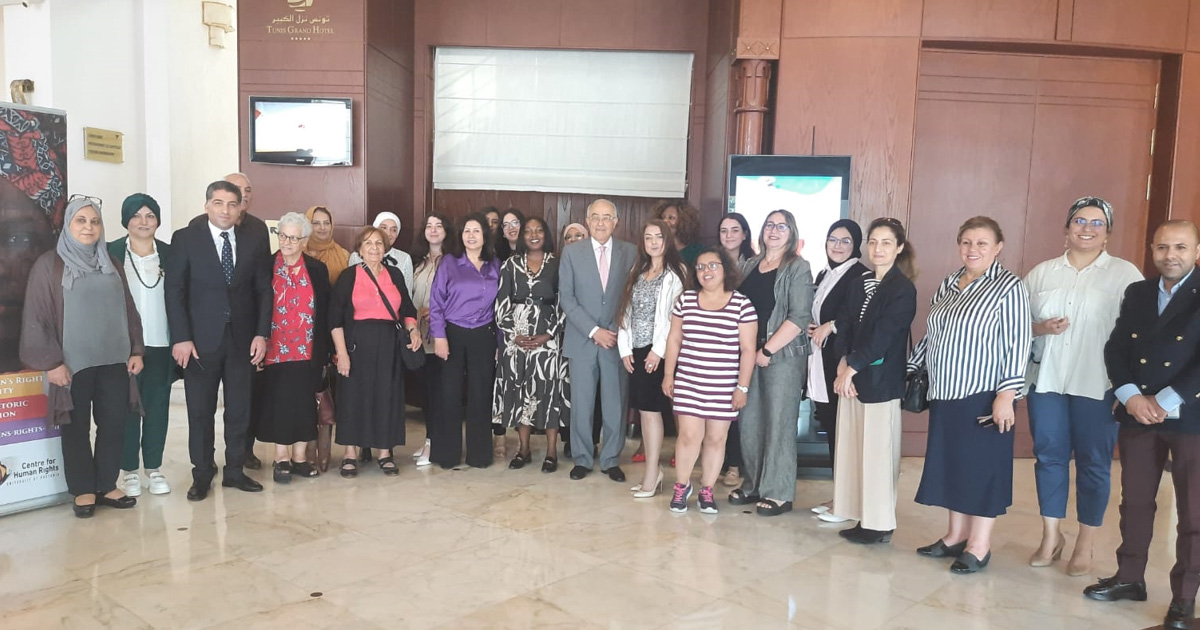The Centre for Human Rights, Faculty of Law, University of Pretoria (Centre) and KADIRAT, Tunisia hosted a three-day Workshop on State Reporting under the African Charter on Human and Peoples’ Rights (the African Charter) and the Protocol to the African Charter on Human and Peoples’ Rights on the Rights of Women in Africa (the Maputo Protocol) from 15 to 17 June 2023 in Tunis, Tunisia. The overall objective of the workshop was to strengthen Tunisia’s capacity to comply with its state reporting obligations under the African Charter and the Maputo Protocol. The Workshop was also aimed at disseminating information to non-governmental stakeholders on the African human rights system.
State reporting is an essential component in monitoring the implementation of the Maputo Protocol. Article 62 of the African Charter and article 26(1) of the Maputo Protocol outline the obligations that ratifying states hold with respect to state reporting. State parties commit to submitting a report every two years detailing the legislative or other steps they have taken to ensure the realisation of the rights. State reporting serves several crucial functions that includes stock-taking of the concrete steps undertaken by ratifying states towards compliance with their obligations under the African Charter and the Maputo Protocol.
Tunisia ratified the African Charter in March 1983 and the Maputo Protocol in January 2015. As of January 2023, Tunisia has seven outstanding reports on the African Charter and is yet to report on the Maputo Protocol since ratification. Gender equality is enshrined in article 21 of the amended Constitution of 2014. However, women in Tunisia are yet to fully realise the rights contained in the Constitution and the Maputo Protocol.
Despite Tunisia ratifying the Maputo Protocol several aspects of the law require reform to adapt the national legal system to the treaty obligations. Several instances of discrimination in law and practice remain in the legal system. Even though the Code of Personal Status stipulates 18 years as the minimum age for marriage, articles 5 and 6 allow marriages under this age with the special permission of a judge granted for serious reasons and in the interest of both future spouses and with the guardian’s consent. Marital rape is also not recognise as an offence under national law. The Nationality Code allow both men and women to pass on their nationality to their children, however this equality applies exclusively abroad. Tunisian fathers and mothers do not have the same rights as children born in Tunisia, because Article 7 specifies that a child born in Tunisia is Tunisian if both the child's father and grandfather were born in Tunisia. The article makes no mention of the maternal lineage. The wife of a Tunisian man can receive Tunisian nationality for legal purposes through a declaration; however the husband of a Tunisian woman must be naturalised, which is a more complicated process.
The Workshop was attended by a diverse range of stakeholders, including government ministries, relevant civil society organisations, members of parliament, academics and scholars. The opening remarks were delivered by Commissioner (Prof) Hatem Essaiem a national of Tunisia on the African Commission on Human and Peoples’ Rights.
Participants showed interest in learning about the African Charter, the Maputo Protocol as well as the drafting process of the state report under the African Charter and the Maputo Protocol. The Workshop also enabled participants to assess the situation of human rights in their country over a period that has included significant political changes.
